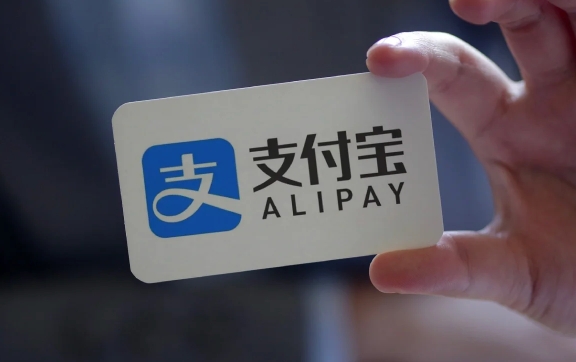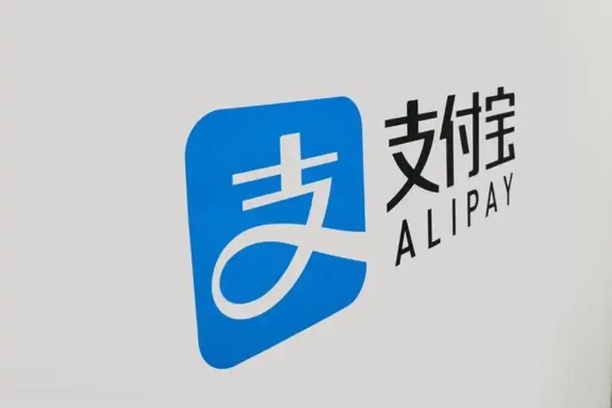 Software Tutorial
Software Tutorial
 Mobile Application
Mobile Application
 Why did Alipay charge me an international transaction fee?
Why did Alipay charge me an international transaction fee?
Why did Alipay charge me an international transaction fee?
Jul 09, 2025 am 02:59 AMYou may see the international transaction fees of Alipay because payments are processed through foreign banks or service providers. 1. International transactions refer to payments processed through foreign financial institutions or foreign currency networks, such as payment to overseas merchants, using foreign credit card networks (such as Visa or Mastercard) that cooperate with Alipay, or using international billing services. 2. Alipay charges this fee because the financial institutions involved will charge about 1% to 3% for such transactions, and Alipay only charges it on behalf of others. 3. Methods to avoid such fees include: confirming whether the merchant is overseas, giving priority to using local payment methods, choosing a payment tool that exempts international transaction fees, and checking transaction details immediately after payment, contact customer service in a timely manner.

You might be seeing an international transaction fee from Alipay because the payment you made was processed through a foreign bank or service provider — even if you didn't leave your home country. This can happen in several common situations.

What counts as an international transaction?
An international transaction usually means any payment that goes through a foreign financial institution or is processed outside your local currency network. Here are a few examples:

- You used your Alipay account to pay a merchant based overseas.
- The payment went through a foreign credit card network (like Visa or Mastercard) that partners with Alipay.
- You're using a service where the billing is handled internationally, like some online subscriptions or digital platforms.
Alipay typically charges this fee because banks and global payment networks often apply their own fees for handling cross-border transactions.
Why does Alipay charge this fee?
Alipay itself doesn't set the fee arbitrarily — it's usually passed down from the financial institutions involved. Here's how it works:

- When you make a payment that involves a foreign network or bank, those institutions may charge a small percentage (usually around 1% to 3%) for converting and processing the transaction.
- Alipay collects this fee on their behalf and passes it directly to you as a line item on your receipt or statement.
It's similar to when your bank charges a foreign transaction fee for using your debit card abroad — it's not about where you are, but where the money flows behind the scenes.
How to avoid unexpected international transaction fees
If you want to avoid these fees in the future, here are a few practical tips:
- Check whether the merchant or service you're paying is based overseas.
- Use a local payment method if available — for example, choosing a domestic bank transfer instead of a linked international card.
- If you're making frequent purchases abroad or through international services, consider using a payment method or card that waves foreign transaction fees.
Also, always review your transaction details right after paying. That way, you can catch any unfamiliar charges early and reach out to Alipay support if needed.
So, basically, Alipay charged you an international transaction fee because your payment touched a foreign system or currency — and those systems often charge a small fee that gets passed along. It's not unusual, but being aware of how it happens can help you plan better next time.
The above is the detailed content of Why did Alipay charge me an international transaction fee?. For more information, please follow other related articles on the PHP Chinese website!

Hot AI Tools

Undress AI Tool
Undress images for free

Undresser.AI Undress
AI-powered app for creating realistic nude photos

AI Clothes Remover
Online AI tool for removing clothes from photos.

Clothoff.io
AI clothes remover

Video Face Swap
Swap faces in any video effortlessly with our completely free AI face swap tool!

Hot Article

Hot Tools

Notepad++7.3.1
Easy-to-use and free code editor

SublimeText3 Chinese version
Chinese version, very easy to use

Zend Studio 13.0.1
Powerful PHP integrated development environment

Dreamweaver CS6
Visual web development tools

SublimeText3 Mac version
God-level code editing software (SublimeText3)

Hot Topics
 How to get a refund through Alipay?
Jul 05, 2025 am 02:31 AM
How to get a refund through Alipay?
Jul 05, 2025 am 02:31 AM
TogetarefundthroughAlipay,theprocessvariesdependingonwhetherit'sforonlinepurchases,in-storepayments,orservices.1.Foronlinepurchases(e.g.,Taobao,Tmall),opentheapp,goto“My”>“Orders,”selecttheorder,click“ApplyforRefund,”choosethereason,andsubmit;refu
 How to verify an Alipay account for foreigners?
Jul 04, 2025 am 01:56 AM
How to verify an Alipay account for foreigners?
Jul 04, 2025 am 01:56 AM
Verifying an Alipay account as a foreigner is now more convenient, with only a passport and a Chinese mobile phone number. Specific steps: 1. Prepare a valid passport, Chinese mobile number and log in to Alipay; 2. Open the application and enter the "My" page to find the real-name authentication option; 3. Select the overseas user entrance, fill in the passport information and upload photos; 4. Follow the instructions to complete the self-port verification; 5. Wait for a few seconds to confirm the result. Notes include ensuring clear photos, good lighting, and some features such as Huabei may still be unavailable. If you encounter any problems, you can seek support through the Help Center or customer service.
 Which US stores accept Alipay?
Jul 04, 2025 am 02:15 AM
Which US stores accept Alipay?
Jul 04, 2025 am 02:15 AM
Although Alipay is not as popular as China in the United States, it is still available in some large retailers and tourist attractions. The main stores include Macy’s, Nordstrom, SaksFifthAvenue, ToryBurch, KateSpade, etc., especially in major cities and airports such as New York, Los Angeles, San Francisco. 1. You can check the Alipay logo, ask the clerk, use the Alipay "scan" function, or check its overseas cooperation list to confirm whether it is supported; 2. If it is not supported, you can try WeChatPay, bind a virtual prepaid Visa card or use a credit card as an alternative. It is recommended to bring an alternate payment method when traveling for emergencies.
 How to unfreeze my Alipay account?
Jul 05, 2025 am 01:52 AM
How to unfreeze my Alipay account?
Jul 05, 2025 am 01:52 AM
To unfreeze Alipay accounts, you must first clarify the reason for the freezing. You can usually view notifications or message center prompts in the account, such as security risks, policy violations or overdue payments. 1. Log in to the account to view notifications on the top banner or "Message" part; 2. Complete identity verification according to the prompts, such as facial recognition, SMS verification code or uploading ID card; 3. If there is no clear information, try to replace the device or clear the cache; 4. Contact customer service to explain the situation and submit ID card or address certificate as required; 5. Solve fundamental problems such as paying off Huabei's debt, modifying passwords and enabling two-factor verification, correcting violations, etc. After completing the above steps, the account can usually return to normal.
 How to pay on AliExpress or Taobao with Alipay?
Jul 03, 2025 am 01:21 AM
How to pay on AliExpress or Taobao with Alipay?
Jul 03, 2025 am 01:21 AM
TouseAlipayautomaticallyonTaobaoorAliExpress,ensureyouraccountislinkedwithAlipayandsetitasthedefaultpaymentmethod.1.OnTaobao,afterclicking"BuyNow"or"Pay,"Alipaywillappeardirectlyifsetasdefault.2.OnAliExpress,Alipaytypicallyappears
 Is Alipay safe for foreigners to use?
Jul 06, 2025 am 01:03 AM
Is Alipay safe for foreigners to use?
Jul 06, 2025 am 01:03 AM
Yes,AlipayisgenerallysafeforforeignerstouseinChina.1.Foreignerscanregisterusinginternationalphonenumbersandforeignpassports,thoughsomefeaturesmaybelimited.2.Securityfeaturesincludetwo-factorauthentication,biometriclogin,andfrauddetection.3.Safeusaget
 How to add money to my Alipay account with a foreign card?
Jul 03, 2025 am 01:12 AM
How to add money to my Alipay account with a foreign card?
Jul 03, 2025 am 01:12 AM
Alipaynowallowsaddingmoneywithforeigncardsthroughspecificsteps.First,ensureyourVisa,Mastercard,orAmericanExpresscardsupportsonlinetransactions,isnotprepaid,andallowscross-borderpaymentstoChina.1.OpentheAlipayappandgotoMyWallet.2.TapTopUpandentertheam
 What do I do if I lose the phone with my Alipay app?
Jul 05, 2025 am 02:21 AM
What do I do if I lose the phone with my Alipay app?
Jul 05, 2025 am 02:21 AM
Contact the operator immediately to report the lost SIM card and call the alarm. 2. Log in to Alipay through other devices to modify the password and clear the trusted device. 3. Check the transaction history and contact customer service to freeze the account. After discovering that the phone is lost, you should prevent others from obtaining verification codes and prevent the device from being used remotely; then change the account security settings to cut off possible access channels; finally, continuously monitor the account dynamics and communicate with the official to take further protection measures to ensure the security of funds.





